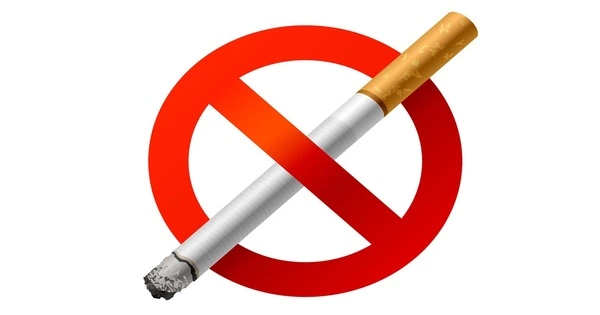Smoking causes disease and disability, as well as harm to nearly every organ in the body. Tobacco use is linked to cancer, heart disease, stroke, lung disease, diabetes, and chronic obstructive pulmonary disease (COPD), which includes emphysema and chronic bronchitis. Smoking also increases the risk of tuberculosis, certain eye diseases, and immune system problems such as rheumatoid arthritis.
Some of my classmates smoke on a regular basis. I was once invited to smoke a cigarette. As a result, I took a puff and choked on the smoke. My friends laughed, but it put me off smoking for good. I’m not sure how anyone could inhale the foul smoke into their lovely lungs.
I have to say that I am glad that I do not smoke, for evidence against smoking keeps increasing. Smoking certainly is hazardous to health.
A habitual smoker is constantly coughing or clearing his throat. This is a clear indication of a smoker. My father, uncle, and smoking friends all seem to have a constant cough. Every now and then, I hear them hacking away. Cough drops and other medications are used to treat the cough, but they are ineffective. For them, the only solution is to stop smoking. This is simple to say, but I can see how difficult it is for smokers to do. They are addicted to smoking.
A chronic cough is bad enough to have to deal with every day. The greater risk is that it will worsen into something worse, such as lung cancer or other diseases. Also, it is an established fact that smokers are more prone to heart diseases and strokes. Their health is also generally poorer. In the event of severe illness, a non-smoker has a much better chance of surviving than smokers. Smoking weakens the whole body.
Pregnant women who smoke may have smaller and less healthy children. Given the risks that a smoker faces, smoking is not a very wise decision. However, intelligence is rendered ineffective in the face of a constant barrage of cigarette advertisements via the mass media.
Each year, secondhand smoke causes approximately 41,000 deaths among nonsmokers and 400 deaths among infants. In adults, secondhand smoke causes stroke, lung cancer, and coronary heart disease. Secondhand smoke exposure increases the risk of sudden infant death syndrome, acute respiratory infections, middle ear disease, more severe asthma, respiratory symptoms, and slowed lung growth in children.
My friends who smoke do not have enough stamina, as they say. They do play games, but I can see that they really do not have the staying power of non-smokers. They tire quickly and immediately after the game the first thing they reach for is a cigarette. Of course, they are smart enough not to get caught smoking in school, but the teachers are no fools. Yellow teeth, yellow fingers and smelly clothes are sure signs of a smoker. Usually, the teacher says nothing as long as the students do not smoke in school.
The dangers of smoking are obvious: poor health, a persistent cough, a lack of stamina, a waste of money, and a potentially quicker and more painful path to the grave all await the smoker. If you do smoke, it is always better to quit. If you do not smoke, do not begin. You’ll be glad you didn’t.
If you’ve ever tried to quit smoking but failed, have strong cravings for cigarettes, find it difficult to concentrate, or are irritable because you don’t smoke, you’re addicted to nicotine. This is a physical addiction that alters your body chemistry so that you feel this way even when you don’t smoke. It can be hard to stop, but quitting is one of the best decisions you will ever make. You may have to try many times before you do it. Never say “I can’t.” Keep trying.
















